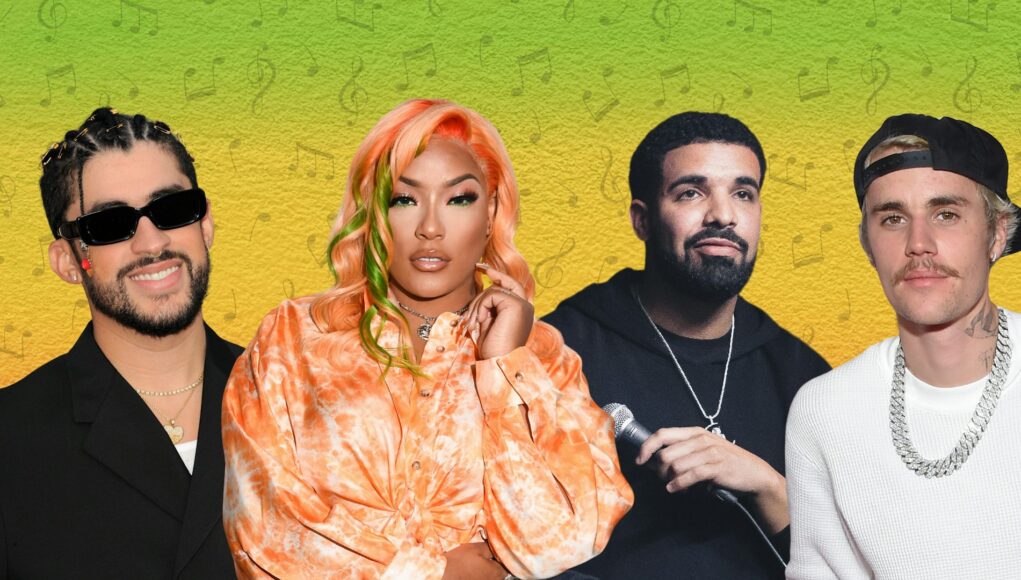By Enrico Bonadio, City, University of London; Bryan Khan, Università di Torino, and Sonjah Stanley Niaah, The University of the West Indies
There is a landmark copyright case looming in the music world. In late May 2024, a federal court in California issued a decision to continue a litigation involving the lucrative reggaetón genre. This legal action could have a lasting negative impact on such a genre as more than 160 defendants are being sued by the Jamaican company Steely & Clevie Productions for alleged copyright infringement.
Among the defendants are several well known artists from the reggaetón scene and beyond, including Bad Bunny, Daddy Yankee, Karol G, Justin Bieber, Drake, Luis Fonsi, Pitbull, Stefflon Don and Puerto Rican singer Rauw Alejandro. Several publishing companies and record labels are also being sued.
Steely & Clevie Productions manages the repertoire of the Jamaican dancehall production duo consisting of the late Wycliffe “Steely” Johnson and Cleveland Browne. The company claims that around 1,800 reggaetón songs illegally used and benefited from – directly and indirectly – elements of the duo’s Fish Market rhythm.
Fish Market (1989) was a Steely & Clevie tune which became famous worldwide after being legally sampled in the track Dem Bow by Jamaican dancehall artist Shabba Ranks in 1990. It was also lawfully used in Pounder Riddim (1990) by the reggaetón producer and sound engineer Dennis Halliburton.
According to the legal complaint, the defendants have sampled and “mathematically copied” for decades what in the meantime had become the Dem Bow rhythm. It’s a percussion-heavy, slightly syncopated beat that originated in Jamaican music genres reggae and dancehall. It has since become the characteristic beat of reggaetón – a sound marked by strong percussion and catchy (usually Spanish) lyrics.
Is the Dem Bow rhythm copyrightable?
The complainant claims that the beat in question is original in part because the drum tones used to construct the beat are “synthesised” (electronically generated signals transformed to create percussive sounds). Indeed, Johnson and Browne’s most significant impact on Jamaican music was that they helped pioneer the use of digitally synthesised rhythms and digital drum samples which characterised the evolution of reggae to dancehall in the mid-late 1980s.
The exact choice of instrument (such as whether a physically played acoustic drum or a digitally synthesised drum sample is used) is typically irrelevant for copyright protection in a musical composition. Rather, such choices are in the domain of a specific rendition of a song captured in a specific sound recording.
The main issue in this dispute is therefore whether these production choices are considered original enough to attract copyright protection. If such copyright claims are upheld by the Californian court, the ruling might overturn a long-held perception in the music industry that rhythmic elements (such as drum beats) cannot be the subject of copyright protection.
In other words, a copyright infringement decision in this dispute would raise the same concerns triggered by the (heavily criticised) 2015 Blurred Lines case in the US. In that dispute, the estate of Marvin Gaye prevailed against pop musicians Robin Thicke and Pharrell Williams for a song which had a similar “feel” to that of Gaye’s song.
In that case, the court failed to distinguish between the elements of music that are protected and those that are not. And this has the stifling effect of allowing composers and recording artists to seek copyright protection over whole styles and grooves which are firmly rooted in a genre’s tradition.
A similar outcome may therefore have a disruptive impact on the reggaetón music genre as well. The Dem Bow rhythm was adopted by the Dominican Republic music scene, influencing Latin American pop music. Gasolina by Daddy Yankee (2004), Tití Me Preguntó by Bad Bunny (2022) and Qlona by Karol G & Peso Pluma (2023) are among the thousands of songs that incorporate an iteration of the iconic rhythm. Many of them have attracted millions of streams.
Because of the legal action brought by Steely & Clevie Productions, these songs may be deemed in violation of copyright. This would establish a precedent for future copyright claims based on popular rhythms.
Cultural appropriation?
Another thing this case reinvigorates is the debate about cultural appropriation. It has often been noted by researchers that Jamaican genres such as dancehall and reggae, which have influenced reggaetón, lack economic parity with the latter.
This has raised questions of power, commodification and fetishisation of a “cool” Jamaican factor for profit. Indeed, many Jamaican producers have been starved of support from major labels and associated copyright protection for decades as they compete for space in the creative industries.
The established business practices of borrowing and remixing aside, local communities are now signalling their insistence on “fair trade” in a changing global music market. The cultural appropriation issue may now take centre stage in the case started by Steely & Clevie Productions.
The judge hearing the case, André Birotte Jr., used to be a college party DJ, which suggests some promise that the final decision will be well-grounded and balanced. But it won’t be easy to reconcile all stakeholders’ interests.
Protecting a pre-existing musical work – and more broadly Jamaican music heritage – may jeopardise the very existence of reggaetón. This outcome would mean ignoring the cumulative nature of music creation. Borrowing from earlier pieces is a structural element of many genres. Musicians and lawmakers across the world will be looking to this case with interest, as its ramifications will be felt throughout the industry.![]()
Enrico Bonadio, Reader in Intellectual Property Law, City, University of London; Bryan Khan, Senior Researcher in Law and Economics, Università di Torino, and Sonjah Stanley Niaah, Senior Lecturer, Institute of Caribbean Studies and Reggae Studies Unit, The University of the West Indies
This article is republished from The Conversation under a Creative Commons license. Read the original article.







